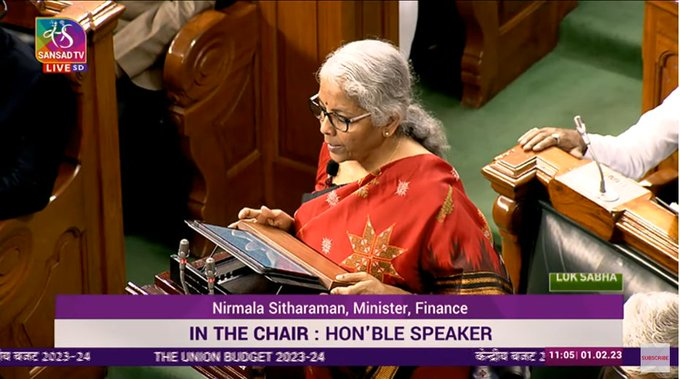Biznextindia : Union Finance Minister Nirmala Sitharaman has tabled union budget 2023-24 in the Loksabha.
This Budget holds significance as it is Narendra Modi government’s last full budget before the next general elections in 2024, slated for April-May 2024.
Budget Expectations
S Anand, CEO & Co-Founder of PaySprint
“India boasts a staggering 87% adoption rate of fintech, significantly greater than the global average of 64%. Consequently, the Indian Fintech industry is set on a steep growth trajectory, expected to reach Rs 9.2 billion at a CAGR of 24.96% between 2022 and 2027. Supported by the robust startup ecosystem, the Fintech industry is shaping up to be a solid contributor to the nation’s GDP.
Additionally, the Fintech sector is frontlining the cause of Financial Inclusion in India & the sector expects initiatives that will strengthen the relationship between Fintechs & Banks. This will most certainly encourage continued innovation & help extend the reach of financial services to the unbanked population.
More expected measures that will boost the Fintech landscape are discussed below :
Tax relief for growing Fintech startups:
Fintech startups are hopeful for GST exemptions until a certain level of revenue is achieved. Liberalisation of the tax structure along with depreciation on the fixed assets used by Fintechs, can go a long way in promoting advancement. Announcement of tax benefits for research & development activities would bolster the ideation & execution of differentiating financial products & services for the masses.
Continued push for Digital Payments:
The recent Budgets introduced several incentive schemes to promote digital payments & we expect the momentum to continue in this year’s Budget. The UPI has augmented India’s payments & collections infrastructure and has penetrated the unserved & underserved population in semi-urban & rural regions. New guidelines regarding the UPI transaction cost will be a major development, providing a much-needed impetus to the sector’s expansion.
Tax relief for Fintech startup employees:
A strict qualification criteria accompanied the tax benefits introduced in the previous Budget. It aimed to resolve the dual taxation issue but most startups could not reap the benefits. ESOP holders in Fintech Startups can really gain from tax being levied on the sale of shares rather than on the exercise of ESOP.
Revised regulations for Fintech players & startups:
Conscious revision of the regulations will help establish an enabling environment for Fintechs to function & evolve. We expect to see regulations regarding the digital currencies & how they will take shape in the workings of the industry.
Data security:
Digitalisation has also given rise to various security threats such as data breaches, data loss, account hacking among others. Enhancement of data security measures is imperative & we expect the upcoming Budget to facilitate the same.”
Suman Banerjee, CIO, Hindenova
- India’s domestic consumption story is faltering because of high inflation. I expect tax breaks in terms of higher rebates to stimulate domestic consumption.
- Asset monetization is going to be key. The 5G auction is going to be key to raise cash. The 3700-4200 MHz and 4700-4800 MHz spectrums are available for auction.
- Energy autonomy will mostly be an important theme. India has reduced import duties on heavy-scale batteries and I’m predicting 25000 crores allocated to strengthening the energy grid.
- The PLI (Productivity Linked Incentive) Scheme which promotes manufacturing within India will be extended to MSMEs. Currently it’s for large firms only.


